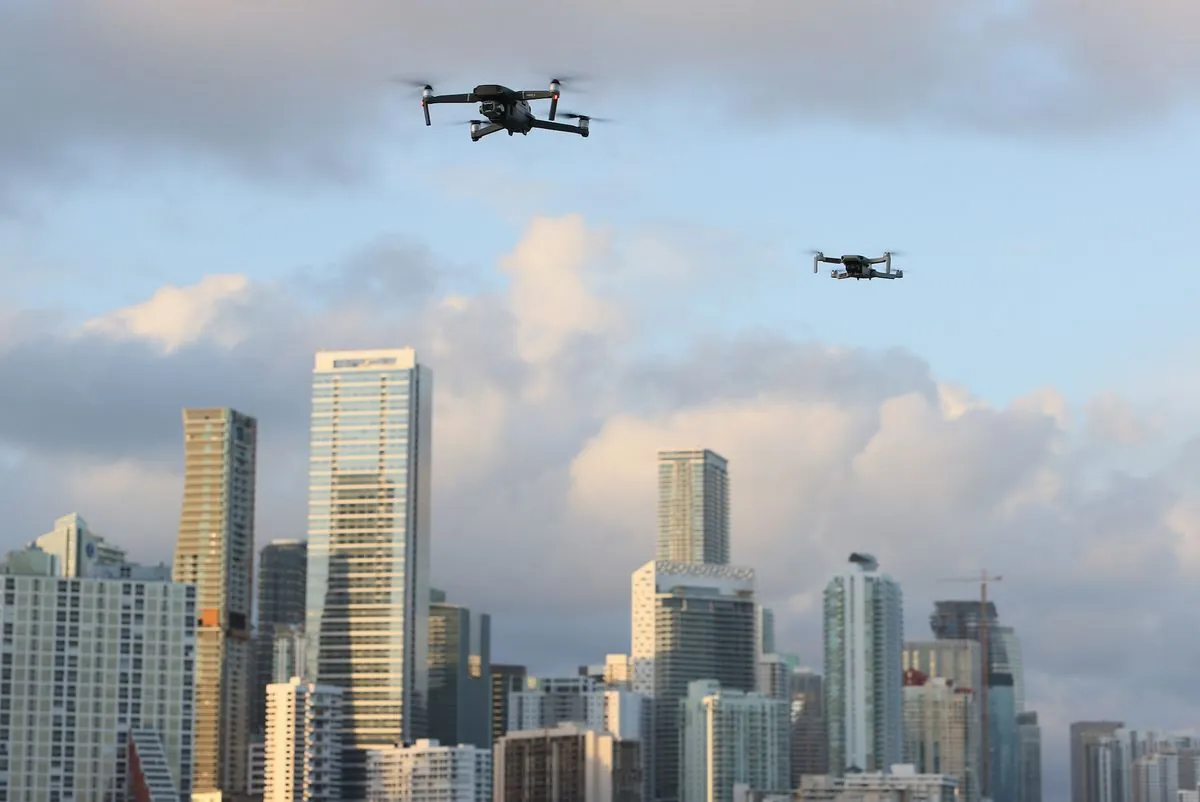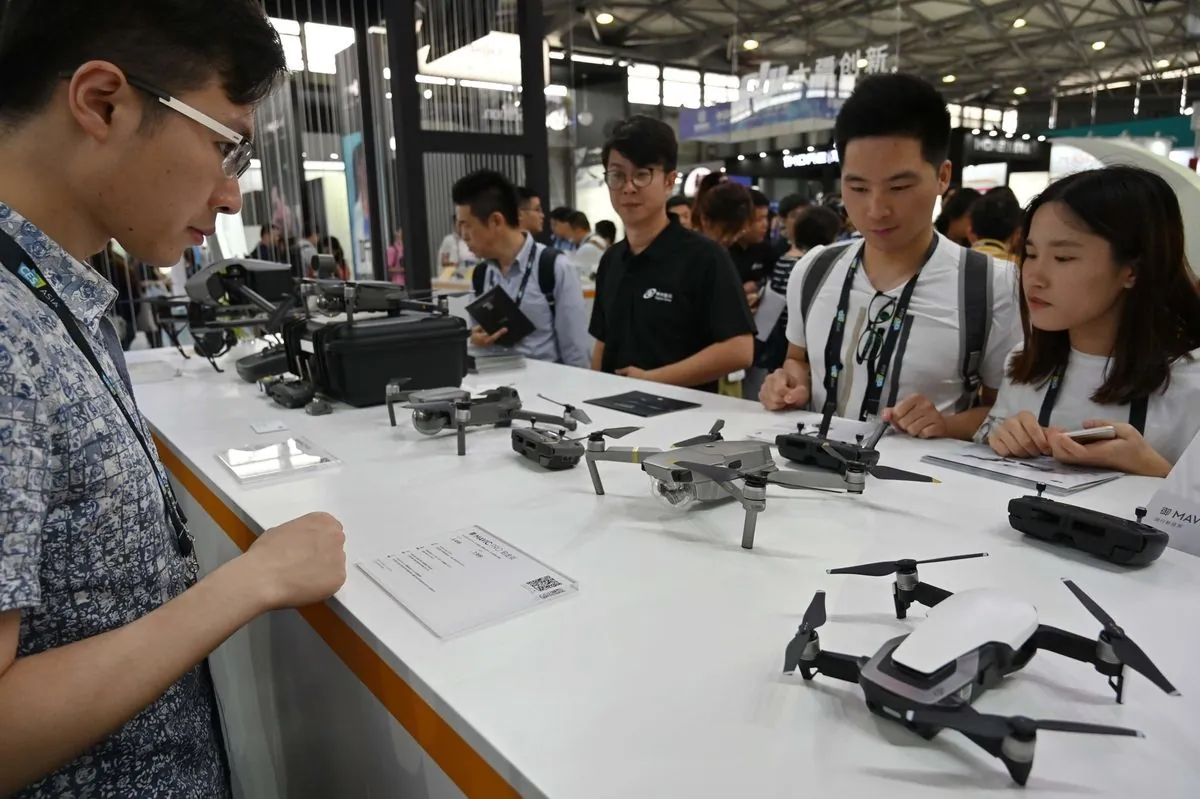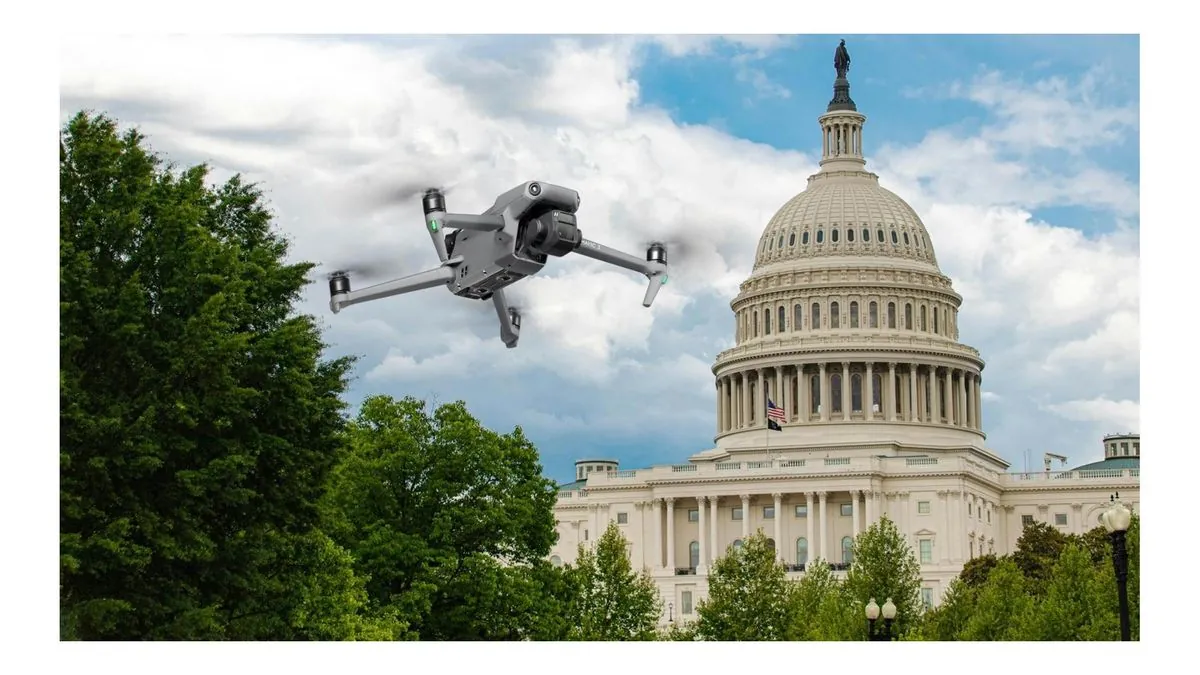U.S. Lawmakers Target Chinese Drone Maker's Market Workaround
U.S. legislators urge investigation into Chinese drone maker DJI's licensing agreements, citing national security concerns. The move could impact public safety agencies relying on these drones.

U.S. lawmakers are intensifying efforts to address potential security risks associated with Chinese-made drones, particularly those manufactured by DJI, the world's largest consumer drone manufacturer. The House Select Committee on the Chinese Communist Party has called on the Commerce Department to investigate companies allegedly facilitating the sale of DJI products through unconventional licensing agreements, potentially circumventing U.S. security bans.
This scrutiny comes as regulatory pressures mount, with new DJI drone models potentially facing a ban from the U.S. market as early as 2025. The Pentagon's 2022 classification of DJI as a Chinese military company has already prohibited U.S. military procurements of their products.
John Moolenaar, the committee chairman, emphasized the need to prevent Chinese companies from evading American scrutiny through "white labeling" their products. This practice involves licensing Chinese technology to manufacture similar products in other countries before selling them in the United States.

One company under scrutiny is Anzu Robotics, a Utah-based firm with a single full-time employee. Anzu has obtained a license from DJI to manufacture drones nearly identical to the popular Mavic-3 model in Malaysia. This unique arrangement, which involves no licensing fees, allows Anzu to sell a version of the Chinese drones that would not be affected by the proposed 2025 ban on new DJI models.
"It could be just like a monthly fee … but I am unaware of that and I like to be unaware of that because then I could say I don't know how DJI is benefiting from this."
The potential ban on DJI drones poses significant challenges for U.S. public safety agencies. As of 2020, approximately 90% of drones used by these agencies were manufactured by DJI. Law enforcement and firefighting departments rely heavily on these drones for various operations, from SWAT team missions to search and rescue efforts.
Kyle Nordfors, drone search-and-rescue coordinator for Weber County, Utah, expressed concerns about the potential ban, stating that "American lives will be lost because of it." This sentiment highlights the complex balance between national security concerns and the practical needs of public safety agencies.
The debate surrounding DJI and other Chinese tech companies reflects broader tensions in U.S.-China relations. As of 2024, four years have passed since DJI held around 77% of the U.S. market, demonstrating the company's significant presence in the industry. The ongoing scrutiny and potential restrictions on Chinese technology firms continue to shape the landscape of international trade and technological innovation.

As the situation unfolds, policymakers, industry leaders, and public safety officials must navigate the complex interplay between national security, technological advancement, and practical necessities. The outcome of this debate will likely have far-reaching implications for the drone industry, U.S.-China relations, and the future of technological innovation in an increasingly interconnected world.


































